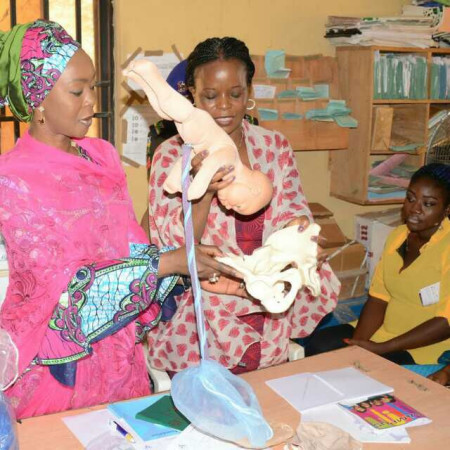In Nigeria, approximately 40000 women died from complications of pregnancy and childbirth in 2013, making Nigeria the second highest contributor to maternal deaths globally.

Wellbeing Foundation Africa is providing antenatal education, a crucial component of antenatal care. It indirectly saves lives of mothers and baby by promoting and establishing good health before, during labour and the postnatal period.
Felicity Ukoko, the Wellbeing Foundation Africa’s Head of Midwifery said, Antenatal education provides an opportunity to promote healthy behaviours such healthy eating, exercise, healthy diet, healthy lifestyle promote normal birth, breastfeeding and care of the newborn.
An opportunity to raise awareness about issues such as mental health, domestic violence and FGM. An opportunity for midwives to have a one to one with women and discuss sensitive issues. In addition, deaths of newborns represent one-third of all deaths of children under the age of five in the country.
Low levels of facility delivery, skilled attendance at birth and use of modern contraceptive methods all contribute to the newborn mortality rate which is very high, with 37 new-born deaths for every 1000 live births, and 42 of every 1000 pregnancies resulting in stillbirths.
Building on the remarkable success of the past 2 decades in reducing child and maternal mortality, global leaders have set an ambitious goal of ending preventable child and maternal deaths by 2030. This objective is enshrined in the United Nations, Sustainable Development Goals and requires new innovative approaches. By focusing on empowering women with information and knowledge through our innovative MamaCare Antenatal and Postnatal Education programme.
Innovative intervention that can change practice, changing the way we do things, bringing evidence based practice leading to access, affordable and effective care. We have seen effective health interventions and behaviour change approaches in global health programming, all a powerful role in improving health outcomes.
Our MamaCare programme is also in line with the new World Health Organization (WHO) recommendations which increased the amount of health visits for expectant mothers to at least 8. Through our classes, midwives have repeated contact with women, this is because the classes are purposeful and delivered in a respectful manner and the women tend to come back for more information, giving us health professionals a great opportunity to provide intervention where necessary. The MamaCare programme is a great example of how the WHO recommendations can be met, especially in low – middle-income countries.
Our MamaCare classes are fast expanding and currently delivered in Nigeria across Lagos, Kwara State and Abuja, operating in 17 health facilities and we have reached over 300,000 mothers, already, in just 15 months. Our midwives also regularly visit Internally Displaced Persons Camps in Nigeria where they deliver classes and Mamakits which contain essentials for expectant and new mothers. As we expand in Nigeria and across Africa, we hope you can join us on our journey, in ensuring mothers and newborns are given a high-level continuum of care and counselling no matter where they are located in the world.








